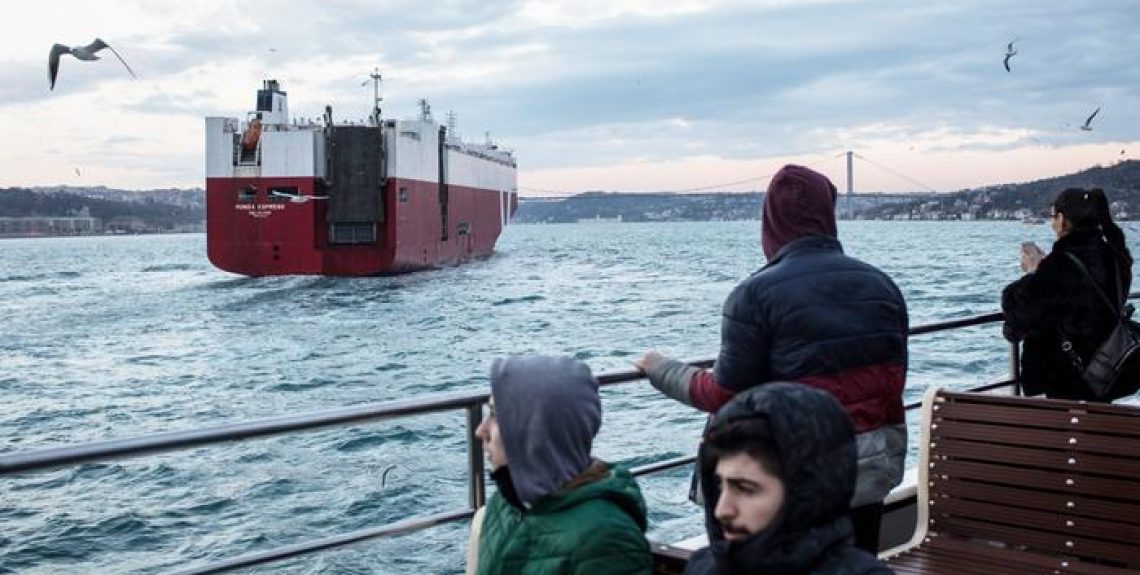While a lot of changes are predicted after COVID-19, some other dynamics will quietly continue and prepare new tensions. The case in point is Russian-Turkish relations, which have a historical conflictual track record. Despite last year’s uneasily pragmatic rapprochement achieved by Presidents Putin and Erdoğan over the Syrian and Libyan crises and with regards to energy issues (i.e. the Turkish Stream megaproject), the structural and centuries-old divergence between the two powers re-emerge periodically. The future hot spot that may trigger new Russian-Turkish tensions lies in one of the most ancient and historically disputed areas between the two former empires – the Black Sea region. The primer is the concrete possibility that heavy nuclear aircraft carriers may enter this Sea after 87 years of treaty prohibition.
Turkish President Recep Tayyip Erdoğan has always opposed Russia’s moves into Ukraine and Crimea and maintained strong bilateral ties with Kyiv, since the Euromaidan uprising in 2014. Recently, President Erdoğan reiterated the Turkish government’s official position of non-recognition of Russia’s annexation of Crimea, and, in his bid to present himself as the worldwide protector of the Islamic Ummah, promised aid and funds to the Crimean Tatars displaced into different regions of Ukraine. Contemporaneously, there are two main points of contention in the Black Sea region between Turkey and Russia: 1) the annexation of Crimea by the Russian Federation and 2) the protection and support of Muslim Turkic Crimean Tatars in Crimea and mainland Ukraine by Turkey. In addition to these disagreements, there is now an upcoming third issue that could potentially become an even bigger factor in the tangled multifaceted Russian- Turkish relations – the new Istanbul Canal or the Second Bosporus.
President Erdoğan is certainly not a novice when it comes to grand neo-imperial constructions (the massive Presidential Palace in Ankara is a clear example), but this new maritime infrastructure project with an estimated $15-$20 billion budget and planned completion in 2023 is in a league of its own, not only for the impressive architectural features, but also for its great geopolitical significance. The project is in fact a revival of the original idea put forth by the late Turkish Prime Minister Mustafa Bülent Ecevit at the turn of the millennium. The new 45 km long Istanbul Canal will run parallel with the existing Bosporus Canal, linking geostrategically the Black Sea with the Sea of Marmara. The declared goal is to alleviate the congested shipping traffic and the incidence of shipping accidents on the Bosporus Canal, and to gain new revenues (estimated at $1 billion per annum) from ships paying for the transit passage.
Despite opposition from the newly elected Istanbul Mayor Ekrem İmamoğlu, who could well be President Erdoğan’s main adversary in the 2023 Turkish Presidential elections, as well as public environmental and costs concerns for the project, President Erdoğan proclaimed that there is no turning back on the project and that bids for the canal construction will soon be called. The political match over the canal construction is not limited to Erdoğan and İmamoğlu; there is a third player – Russia. Moscow has indeed its eyes focussed on the issue due to the historical importance that the Straits of Bosporus and Dardanelles constitute for Russia’s geopolitical aspirations in the Black and Mediterranean Seas and the potential strategic alteration the new canal might bring to the hitherto operating Montreux Convention (The Montreux Convention Regarding the Regime of the Straits).
The Convention, signed in 1936 in Montreux, Switzerland, has constituted a pillar of the Black Sea regional security framework for decades. It regulates the straits issue, establishing Turkey’s military control over the Bosporus and Dardanelles and restricting naval vessels (in terms of number, tonnage, and size) not belonging to Black Sea littoral states that can transit through the Bosporus Canal. Moscow’s worries concern the fact that the Second Bosporus would produce a de facto, tacit denunciation of the existing Montreux provisions, thereby allowing other states’ warships and military vessels of any size to pass through the straits into the Black Sea basin.
From Moscow’s standpoint these concerns are not far-fetched. The Turkish government’s repeated pronouncements that the new canal will not be subject to the Montreux Convention are a serious concern for Russia, which deems the Black Sea region as part of its ‘near abroad’. Regardless of the Istanbul Canal’s hypothetical materialisation by 2023, the debate over it, the divergences of views regarding the Crimea non-recognition policy and the support for Muslim Crimean Tatars by official Ankara, make it plausible to anticipate that relations between Russia and Turkey in the Black Sea region will be further put to test. Inevitably, such a test will solicit and challenge NATO’s geopolitical presence in the region, and it will likely redefine the nature of Ankara’s bond to the Atlantic Alliance.
Giorgio Cella
He holds a Ph.D. in ‘Politics and Institutions’ at the Catholic University of Milan, where he holds a seminar in ‘Post-Soviet Geopolitics and the Ukrainian crisis’. He holds a Master of Public Management from SDA Bocconi. His main areas of expertise are Central and Eastern European and Russian Geopolitics and History of International Relations. Contributor to ‘Limes, Italian Review of Geopolitics’.






















